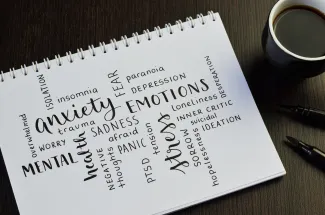
Nebraska DHHS faces cuts despite demand for mental health, substance use programs
Click play to listen to this article.
(Nebraska News Connection) The Nebraska Department of Health and Human Services has seen a $15 million cut to its Behavioral Health Division this year and more cuts are being proposed, despite soaring demand for mental health and addiction treatment programs.
DHHS now faces a $25 million cut to help fund property tax relief.
Behavioral Health Specialists in Norfolk provides short-term residential treatment for substance use disorders.

Neil Broders, executive director of the nonprofit, said the COVID pandemic may have contributed to the mistaken assumption any unspent funding must not have been needed.
"Really, why a lot of places weren't able to pull down their funding and use it, it wasn't because the demand wasn't there," Broders pointed out. "It's because trying to find staff the last four to five years -- it was a difficult period."
Some Nebraska agencies have spent years rebuilding their staff following COVID. Broders explained they have had to compete with national companies who can pay more and allow people to work remotely. He pointed out employers, especially in smaller communities, have had to increase wages and work harder to recruit and retain staff.
Broders added their residential program only recently became fully staffed for the first time in four years.
"We now have the staff to be at 58 beds and are full," Broders reported. "We receive over 100 referrals a month for those 58 beds. So, we have the staffing now to serve the clients, and the clients are there."
The multi-program CenterPointe, based in Lincoln, has seen a similar increase in demand in the past year.
Topher Hansen, president and CEO of the nonprofit, said their primary care clinic served 500 more people, and they provided more than 2,000 additional hours of outpatient clinic care, at least partly because they were able to fill some open positions.
"But the more staff we get, the more availability we have, the more people that come in the door," Hansen observed.
More than half the people CenterPointe served in the last fiscal year reported annual incomes of less than $1,000.
Hansen acknowledged funding for mental health and addiction recovery is not always politically popular, but he stressed it is often a fiscally sound move. He pointed to their "Alternative Response" program, which works with the Lincoln Police Department to send a CenterPointe team, rather than a uniformed officer, for nonviolent welfare checks.
"We have done over a thousand of those in the last year and saved officer time every single time," Hansen emphasized. "We've cut the emergency protective custody incidents in half. We've housed a dozen people, and decriminalized being unsheltered."

















